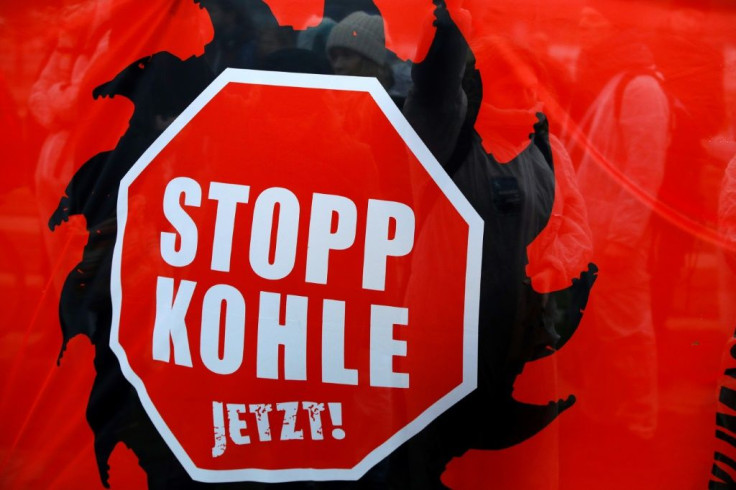Protests In Germany As Cabinet Passes Coal Exit Law

German ministers on Wednesday signed off a law to end coal electricity generation that demonstratorsand environmentalists say does too little, too late.
The 202-page draft, under the clunky German title of "Kohleverstromungsbeendigungsgesetz" (KVBG) lines up an inching exit from coal by 2038 at the latest.
By that date, all coal-fired power plants and coal mines in Germany should be inactive.
Outside Chancellor Angela Merkel's office, marchers brandished signs reading "Shut off the coal plants NOW" and "Smash (power company) RWE".
In a slight concession to pressure from the streets, notably the "Fridays for Future" youth movement, the exit timetable could be stepped up to 2035 based on reviews planned for 2026 and 2029.
"What the government is doing is setting in motion a huge and fundamental transformation in our energy supply," Merkel's spokesman Steffen Seibert told reporters in Berlin.
That was true "even if some elements of this law are of course debated in the public sphere and criticised," he added.
Activists and campaign groups such as Greenpeace say the planned law falls far short of what is needed for Germany to fulfil its climate promises.
"We're in the middle of a climate crisis, and it's unjustifiable for the coal plants to keep warming the Earth for another 18 years," Greenpeace energy sector expert Lisa Goeldner said.
"This draft law disdains the hundreds of thousands of voices of young people" who have demonstrated for swift climate action, added Quang Paasch of the Fridays for Future movement.
Among the first coal plants where the lights will go out is one operated by energy giant RWE, near the massive Garzweiler open-cast mine in western Germany.
Set to close on December 31, the power station burns brown coal, also known as lignite, an especially polluting form of the fossil fuel.

More are set to follow later, notably in de-industrialised areas of the country's former communist east.
The government has promised around 40 billion euros ($44 billion) of aid to the affected regions to help reshape their economies.
And ministers will pay power companies almost 4.4 billion euros in compensation for closing the plants before the planned ends of their operating lives, spread over "the 15 years following the closures".
Meanwhile the decision to allow Germany's newest coal power plant, known as Datteln 4, to begin producing power has been widely criticised.
Politicians argue it makes sense to take brown coal stations offline first.
But protesters have already taken aim at the plant as a symbol of government policy they say values compromise with interest groups over environmental urgency.
Germany has committed to reducing greenhouse gas emissions by 55 percent compared with 1990 levels by 2030.
But Berlin has already acknowledged it will fall short of its goal for this year.
"Further building up of renewable energy to 65 percent of consumption by 2030 will be implemented" in a draft law soon to be presented, Economy Minister Peter Altmaier wrote to cabinet colleagues Wednesday.
The powerful BDI industry federation warned that businesses "are threatened with grave disadvantages in their international competitiveness" if reliable, affordable supply is not secured.
In recent weeks, ministers and lawmakers have been battling over plans to forbid construction of wind turbines within one kilometre (1100 yards) of inhabited settlements.
The move to allay a supposed anti-wind-power backlash among rural populations has been blasted as a step in the wrong direction by climate campaigners.
© Copyright AFP 2024. All rights reserved.





















